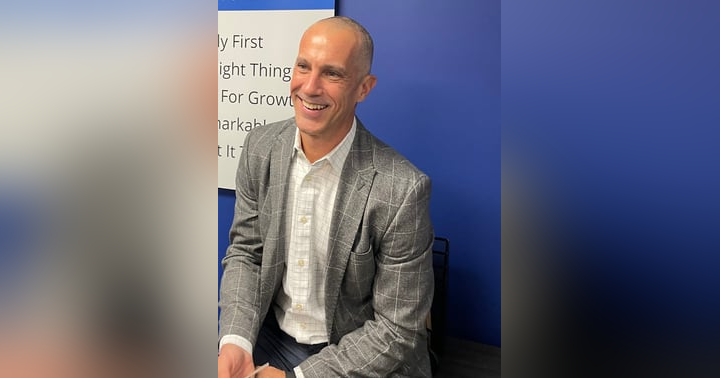
In a world where addictions can take many forms, sexual addiction often remains a hidden and misunderstood battle. The path to recovery from this addiction is one of deep personal transformation, resilience, and support. Through his personal story of overcoming sexual addiction, Logan Hufford provides insight into what it takes to walk this challenging journey toward healing and freedom.
The Hidden Struggle of Sexual Addiction
Sexual addiction, much like other forms of addiction, is not solely about the physical acts themselves. Instead, it’s an overwhelming compulsion driven by deep emotional and psychological triggers. For Logan, it wasn’t just about inappropriate behavior—it was a cycle fueled by the constant pursuit of "new, different, and more." This chase for an unattainable high led him down a path of repeated infidelity, inappropriate texting, and constant objectification, all while creating immense self-hatred and shame.
Logan describes the addiction as not merely about sex, but about the behaviors and triggers that fueled his actions. The compulsive need to chase highs through flirtations or physical encounters led him to cross boundaries repeatedly. However, what he ultimately sought was relief from his internal torment. Each crossing of these boundaries came with feelings of guilt and self-loathing that grew increasingly difficult to bear.
The Turning Point: Acknowledging the Need for Help
For many, admitting the existence of an addiction can be one of the hardest steps. Logan’s turning point came when he could no longer ignore the damage he was causing in his life. After years of staggered confessions to his wife and a growing sense of despair, he realized that the solution to his addiction required more than temporary measures.
It was during this time that Logan sought help through various support groups, including SAA (Sex Addicts Anonymous) and Celebrate Recovery, a Christ-based recovery group. These programs provided him with a safe space to explore the deeper issues behind his behavior, yet something was still missing. It wasn’t until he joined the faith-based Prodigals International that he truly began to see lasting change.
The Role of Faith in Recovery
For Logan, recovery was not just about sobriety but about transformation. Prodigals International, a Christ-based recovery program, was crucial in helping him see beyond simply stopping his behavior. The program was intensive, requiring voluntary commitments similar to house arrest, where participants gave up certain freedoms to focus on their healing. This deep level of accountability played a vital role in Logan's transformation, as he worked through the 12-step program over two years.
During his recovery, Logan found strength in his faith, learning how to reconnect with God and rebuild his sense of self-worth. One of the most profound aspects of his journey was recognizing that his addiction wasn’t about a lack of love for his wife, Carrie. His actions were driven by something deeper—an unquenchable thirst for more that no human relationship could ever satisfy. Understanding this distinction allowed him to stop blaming external factors and instead focus on his inner healing.
The Importance of Community and Mentorship
Logan’s story is a testament to the power of community in recovery. In his darkest moments, it was the men in his recovery groups who stood by him, speaking difficult truths and holding him accountable. The mentorship he received from men who had walked a similar path was invaluable. These men didn’t just offer comfort; they challenged him to do the hard work of recovery, which involved more than just attending meetings.
After completing the program, Logan became a mentor himself, giving back to others in the same way others had given to him. He notes that one of the most effective ways to solidify personal growth is to lead and mentor others. In teaching and guiding others, Logan found a deeper sense of purpose. He realized that his journey through addiction was not just about saving his marriage or himself; it was about being an example to others who thought recovery was impossible.
A Lifelong Commitment to Recovery
Even after completing the program, Logan emphasizes that recovery is a lifelong journey. It’s not about a quick fix or a one-time achievement. He continued to make daily phone calls for accountability and attended weekly meetings, long after the formal program ended. Recovery taught him how to deal with the ups and downs of life in a healthy way. Whether it was handling the stress of everyday life or navigating marital challenges, the skills he learned in recovery became vital to maintaining his progress.
One of the most significant lessons Logan shares is the importance of gratitude. He acknowledges that after years of infidelity, he could have easily lost his marriage. But the grace of God allowed him to restore his relationship with his wife and children. This realization helped him avoid falling into petty arguments or resentment, reminding him of the second chance he had been given.
Final Thoughts
Logan’s story offers hope to anyone struggling with sexual addiction or any other form of compulsion. His journey shows that true healing is possible, but it requires more than just willpower—it demands a deep personal transformation, accountability, and often, faith. For those in the trenches, Logan’s message is clear: there is hope, and there is a way out. With the right support and commitment, a life free from addiction is within reach.
If you or someone you know is battling sexual addiction, it’s essential to seek help. Whether through faith-based programs like Prodigals International or other support groups, recovery is possible.











